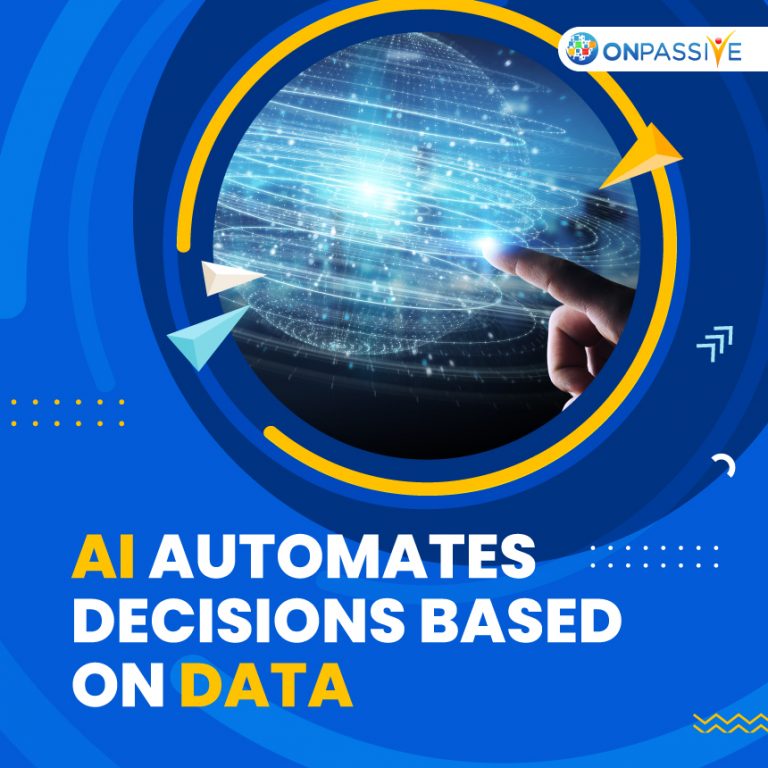
Artificial Intelligence (AI) is setting the stage in practically every industry, which comes as no surprise. According to recent figures, AI technology can increase business efficiency by up to 40%.
Because of the recent rapid diffusion of new technologies, many industry leaders have been prompted to expand into a more advanced and efficient domain, in which AI has established itself as the most potent weapon. Firms with AI at their disposal will have a better chance of staying ahead of the competition in a variety of ways. Indeed, more and more companies are investing in AI in marketing, which has the potential to alter the way we market.
This post will teach you all you need to learn about Artificial Intelligence and how it can help everyone in marketing do their jobs better. Let’s begin!
What Is Artificial Intelligence In Marketing?
Artificial intelligence is a technology that has already become ingrained in our daily lives. We consider devices like Alexa, Siri, Google Home, and Cortana to be experts on our individual needs and aspirations, and we rely on them to help us traverse our surroundings, whether at home or at work. AI in marketing, on the other hand, is a relatively young discipline that is just getting started.
Machine learning has been utilised in marketing since the late 2000s, but it wasn’t until the 2010s that deep learning became popular. Deep learning is a sort of machine learning in which layers of data are linked to solving issues using an artificially intelligent algorithm that can recognise and make sense of patterns in data.
Marketers are already recognising the potential impact of AI on their marketing activities as a result of these strong new technologies’ marketing implications.
How Does Marketers Use Artificial Intelligence?
Many businesses have already begun to use artificial intelligence in their digital marketing efforts. This is all attributable to the development of algorithms that can learn from incoming data on their own. Advances in natural language processing and machine learning are helping organisations create ever more appealing ad material, making marketing one of the most intriguing areas of AI development.
Artificial intelligence is now pervasive. AI chatbots, apps, and even content marketing employ it. Customer experience is one of the most interesting possible applications for AI (CX). Consider Google Duplex, an AI assistant that can make phone calls, schedule meetings, and make restaurant bookings on your behalf. With the advent of powerful AI solutions, marketing will almost certainly be changed in ways we can’t even comprehend right now.
Marketing will be able to delve deeper into consumer psychology if it is streamlined and more efficient. It’s only a matter of time until a machine learning algorithm can advise marketers how to sell to their target audiences. Marketers can already use AI to figure out who their target audiences are, what they want, and how much they’ll pay for it.
Artificial Intelligence Advantages In Marketing
Messages That Are Personalised And Relevant
Companies can use predictive analysis to learn about their customers’ interests and offer recommendations based on that information. Netflix and Amazon utilise this to recommend shows and purchases, respectively. It’s really powerful as a marketer if you can establish a set of data points that allow you to direct users to a specific product or service. Make it simple for users to solve their problems.
Cost-Cutting
As per Business Insider, by 2020, 85 per cent of consumer transactions will be handled without the assistance of a human.
Marketing Activities Are Made More Efficient
Deep learning helps computers to more correctly recognise user behaviour and anticipate which segments are much more likely to become consumers thanks to Artificial Intelligence. Programs can provide particular information about which leads are most likely to convert, letting marketers focus their efforts on specific demographics rather than wasting time on leads who are less likely to convert.
Products Can Be Customised
This includes identifying potential clients based on information such as buy demographics, location, and purchase history, among other things. It also incorporates client data and tracking with the products themselves. For example, Under Armour used IBM’s Watson to merge their own customer data with third-party data to develop a tailored health and fitness tracking app called “Record.”
Conclusion
Out there, it’s a brand new world. We’ve been looking forward to the day when AI in marketing technologies, big data, and machine learning become commonplace. That day has arrived, and it is threatening to obliterate marketing as we know it. This raises the question of whether you’re ready to alter your marketing plan as AI technology advances.
If yes! you can switch to ONPASSIVE’s AI built email marketing tool, O-Post. This tool helps in announcing campaigns and get notifications on time. To know more, contact us.


